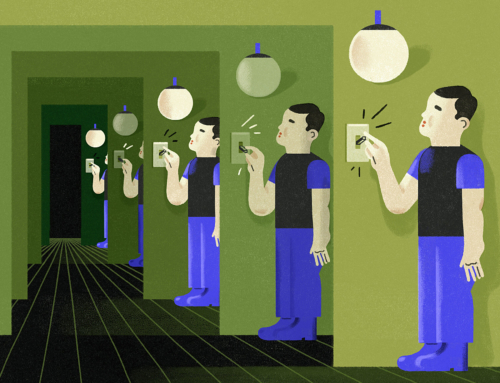Tuesday 5th of April, 2022.
Written by Clinical Psychologist, Ebony Collins.
SELF-ESTEEM, SELF-WORTH
& CONFIDENCE
We often hear the terms self-esteem, confidence, or self-worth. For most people, these terms are viewed as positive qualities that are possessed by individuals who have their lives put together and are living a healthy, balanced lifestyle.
They generally aren’t qualities that we are taught to develop in school. For a lot of people, the mentality of ‘harden up’, or ‘get over it’ were more likely to be the way of thinking that we were taught.
There is misunderstanding about what these terms mean when we refer to having good self-esteem, or being confident, or having positive self-worth. This tends to feel out of reach due to the inflated idea that is held about these terms.
Often, we think of someone who has complete belief in themselves and doesn’t question anything they do, or fear any of the choices they make & actions they take, someone who loves themselves without any hesitation, without any self-doubt and thinks of themselves incredibly highly of themselves. However, that is an absolute extreme and in reality, those few people who do possess these attributes are generally going to be narcissistic.
CHALLENGING THE MYTHS OF SELF-ESTEEM

For ease of reference, I will use self-esteem going forward to cover each of these terms, while they are distinct for the purpose of this article, they encapsulate the same general concepts.
People with good self-esteem still doubt themselves, they just do not focus on their doubt or allow it to hold them back. People with good self-esteem have parts of themselves that they dislike or would like to improve. Instead of viewing these as faults, flaws, or reasons to view themselves negatively; an individual with good self-esteem can see these aspects of themselves as part of the bigger picture. They embrace all the aspects of themselves. By focusing on the positive aspects and acknowledging the efforts being made to address the parts of themselves that they can change, they are able to build a more content and positive connection.
Confident people have doubt. They will question their choices at times. They can even be afraid about what they are doing. The difference is that the confident person doesn’t allow any of this to stop them from moving forward in their lives. They acknowledge the fear, they recognise the potential for failure or embarrassment, and they take a calculated step toward their goals. Confidence is not impulsive; it’s not doing things without any thought of the consequences. Confidence is making a calculated assessment of the risks and continuing to move forward with understanding.
Having self-worth does not mean that you think you are better than everyone else or that you are in some way more deserving. Having self-worth means that you know when to put yourself first, or even know that you can put yourself first. The idea of being selfish has blurred what it means to have self-worth. Selfishness is defined as lacking a consideration of others. Self-worth is about knowing your value and not being better or worse than others or taking from or depriving others. It is giving yourself the same opportunities, the same respect, the same kindness that you give to others. We are generally very good at doing all this for others but struggle to apply the same principles to ourselves. A healthy level of self-worth allows you to value yourself as at least an equal to others.
The aim of building self-esteem, confidence and self-worth is to build a better relationship with yourself.
If you are constantly putting yourself down, calling yourself horrible things, saying demoralising things then you must ask yourself; would want to be friends with someone who talks to you like that? Of course not, so, take it as a lesson to be kinder to yourself.


TIPS FOR IMPROVING SELF-ESTEEM
Practice loving kindness meditations, they are focused on directing the loving kindness you give others, towards yourself.
If you notice your mind focusing on negatives, try to find positives that could balance out your thinking.
Take note of your language. Do you use a lot of negative words, do you frame things unnecessarily from a negative perspective, do you use a lot of ‘should’ and ‘must’ statements? See if you can use fewer negative words. Research has found that the absence of negative words is more effective in improving happiness than the presence of positive words.
Try encouraging yourself and use hopeful statements. Use statements like ‘I’m glad I gave it a try’, ‘I’m proud of what I did achieve’, ‘there is always room for improvement,’ ‘I have learnt something from this experience’, ‘tomorrow is another day’, ‘at least I didn’t give up’.
Forgive yourself. We all make mistakes; we all get things wrong. Mistakes don’t make us a bad person. Learn from it, forgive yourself and move on.
Try accepting compliments or thanks. Rather than dismissing positive feedback or gratitude from others, aim to accept it. Next time someone says thank you, respond with ‘it’s my pleasure’, ‘happy to help’, or ‘you’re welcome’.
When you receive a compliment, rather than shutting it down or dismissing it, accept it by saying something like ‘thank you’, ‘I appreciate you saying that’, that’s made my day’. By accepting these comments, you are acknowledging your value.
To help build your self-esteem you want to start working toward liking yourself and this can begin with how you treat yourself. How you treat yourself can be in the way you think about or talk to yourself, or in the ways you do things for or to yourself.
Try talking to yourself in the same way you would talk to a friend. If you wouldn’t say it to a friend, then don’t say it to yourself. With good friends we can be honest without being critical or hurtful. We are also likely to be more encouraging and supportive of a friend. If you struggle with what to say, then think of this as being a conversation with your best.
Try doing one nice thing for yourself each day. It can be as small as making time to sit down for a coffee or going to bed a little early. You can also try making decisions that place yourself in equal value to others. This could be asking something of someone that also takes into account your needs that they may not be aware of. Or making a choice that meets your needs such as saying no to something.






